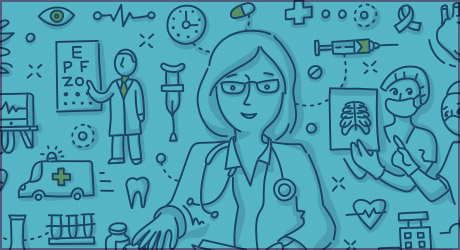
Why Choose Us?
- Recognized as a Top 50 Heart Hospital by IBM Watson
- Designated as Accredited Chest Pain Centers by the Society of Chest Pain Centers
- Longview Regional Medical Center's cardiovascular medicine program is known for its heart failure program, heart valve center and a range of diagnostic and noninvasive cardiology services
- Accredited Chest Pain Center with PCI by ACC Accreditation Services (American College of Cardiology)
- Cardiac Cath Lab accreditation with PCI from the American College of Cardiology
- Member of the Peripheral Artery Disease (P.A.D.) Coalition
Our Services Include:
- Personalized care from diagnosis through recovery by an experienced team of cardiovascular surgeons, interventional cardiologists and rehabilitation specialists
- Advanced diagnostic and imaging technology to find heart disease early, when it’s most treatable
- Open heart surgeries including coronary bypass and valve surgery
- Heart failure clinic
- Atrial fibrillation clinic to treat heart rhythm disorder
- Structural heart program which includes procedures such as transcatheter aortic valve replacement (TAVR), transcatheter mitral valve repair, and left atrial appendage closure
- Specialized treatment for heart rhythm disorders (AFib)
- Peripheral vascular disease clinic for peripheral arterial disease and venous insufficiency
- Heart and vascular rehabilitation that combines education, support and exercise therapy
Heart Healthy Resources

A Woman’s Risk for Heart Disease is Different: Here’s What You Need to Know
Heart disease is a big issue in the United States for both men and women alike. But some risk factors are more unique to women.
Read more »

Is High Blood Pressure Considered Heart Disease?
Finding out you have high blood pressure can be worrisome if you aren’t sure what your numbers mean or what to do about them. Discover how high blood pressure affects your heart.
Read more »

How Does Smoking Affect Your Heart?
Smoking’s impact reaches far beyond your lungs, harming nearly every other organ in the body. Get the specifics on how smoking can influence your heart’s health.
Read more »

Why Your Heart Wants You to Pay Attention to Your Cholesterol
Your liver makes cholesterol in your body, but you also get cholesterol from eating certain foods. Find out how the wrong kind of cholesterol can impact your heart.
Read more »